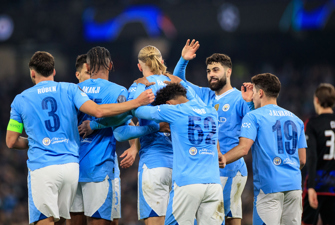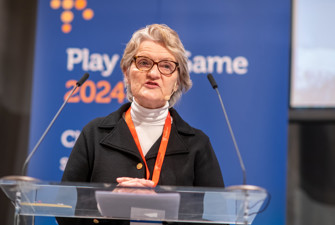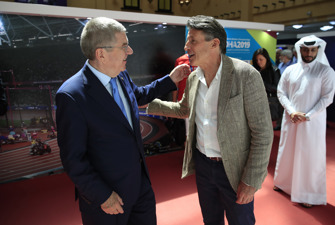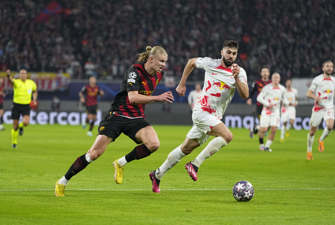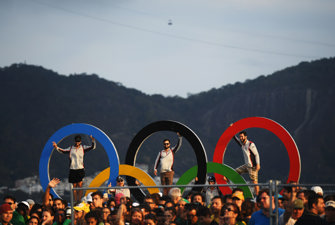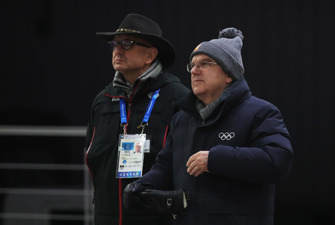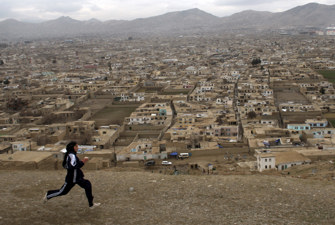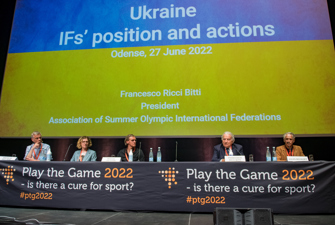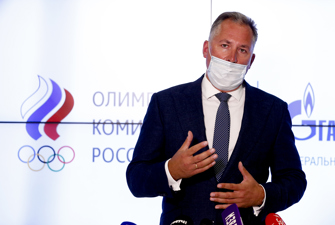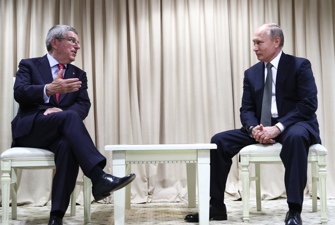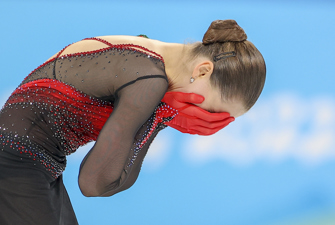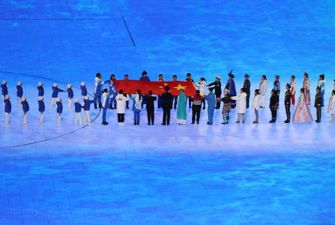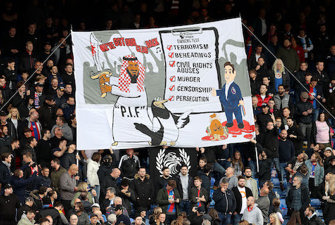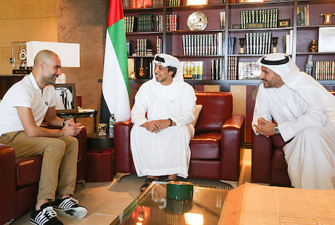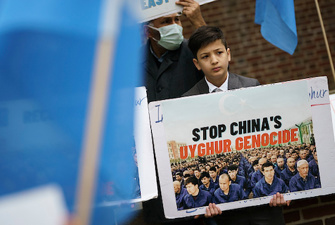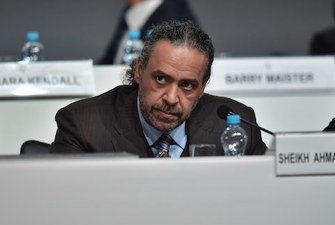How federations share the revenues from the Olympic Games
A number of international sports federations are financially heavily dependent on their share of the revenues from the Olympic Games. Investigative reporter Jens Weinreich reveals how the IOC plans to distribute the money from Tokyo.
The IOC traditionally does not publish how it will distribute the revenues from the Olympic Games – estimated at $ 590 million for the Games in Tokyo - among the 28 permanent summer sports federations. But I can reveal this little secret here.
In May 2019, I received a document during the ASOIF conference on the Gold Coast in Australia:
ASOIF, the umbrella organisation for summer sports, receives $ 2.95 million.
The 28 permanent federations are divided into five groups. The 5 visiting associations get nothing. The 28 permanent associations were unwilling to give up money – that was the deal to allow the guests to join the Olympic party.
Group A, $ 40 million each: Athletics, Gymnastics, Aquatics.
Group B, $ 25.95 million each: Basketball, Football, Volleyball, Tennis, Cycling.
Group C, $ 18.60 million each: Boxing, Badminton, Rowing, Judo, Shooting, Table Tennis, Weightlifting, Archery.
Group D, $ 16.30 million each: Equestrian, Fencing, Hockey, Canoeing, Handball, Triathlon, Wrestling, Sailing, Taekwondo.
Group E, $ 14.10 million each: Golf, Modern Pentathlon, Rugby.
In the end, when the IOC has cleared all of the income (which is usual much bigger than the forecast budget), the federations have always received more money than planned after past Olympic Games.
This could be different after Tokyo, because the corona crisis and the relocation of the Games to 2021 also lead to extra costs. It is necessary to negotiate how these costs, which cannot currently be reliably estimated, will be offset in the future.
It is also unclear whether the IOC will contribute to the enormous additional costs of the organising committee TOCOG with an additional payment. According to initial estimates, TOCOG may well need additional billions.
15 out 28 federations rely heavily on IOC income
In order to be able to estimate to some extent how dependent the 28 international federations are on the shares from the Olympic revenues, I have studied more than 100 annual reports. From these annual reports and the reports of the auditors - insofar as they are published by the federations - I have created an average budget for each federation.
It is just a calculation. But it is interesting to note that some federation presidents have asked me for the full list. They are keen to know how their situation compares to other federations. Knowledge like this can be important for the negotiations. I am going to publish the full list with many additional details in the magazine SPORT & POLITICS shortly.
6 out of 28 associations receive less than 10 percent of their income from the IOC. First and foremost FIFA, which has an average annual turnover of 1.6 billion and only 0.38 percent originates from the IOC. The second richest association is Rugby - the IOC share is currently less than 3 percent. Basketball, Volleyball, Tennis and Equestrian seem to be just as secure.
Another 7 out of 28 federations receive up to about 25 percent of their income from the IOC. These federations can also be viewed as relatively independent: Athletics, Aquatics, Cycling, Badminton, Judo, Table Tennis, Handball.
However, the situation could worsen for these federations because not only is the income from the IOC uncertain, their own income is also at risk.
In 15 of 28 federations, the share of IOC revenues is between 35 and 96 percent. Some of these international federations are therefore in a situation that threatens their very existence: Gymnastics, Boxing (already almost insolvent and banned), Rowing, Shooting, Weightlifting, Archery, Fencing, Hockey, Canoeing, Triathlon, Wrestling, Sailing, Taekwondo, Golf and Modern Pentathlon. (Golf is an exception. Because the IGF was basically founded only to supervise the sport at the Olympic Games.)
World Athletics is yet to publish an annual report
The projections naturally depend on how up-to-date and correct the information from the respective federations is. However, my research also enabled me to confirm some of the results of the Sports Governance Observer published by Play the Game over the past few years.
For example, World Athletics (WA, formerly known as IAAF) comes out worst in matters of transparency and accounting. Despite being one of the richest associations, WA has never published an annual report and the associated audited report – neither under the then president Lamine Diack, now under criminal charges in France, nor under the current president Sebastian Coe. According to the WA, they will publish their first annual report sometime this year.
The UIPM (Modern Pentathlon) is similarly opaque - at the other end of the financial scale. I asked the German UIPM president Klaus Schormann several times for details on the federation’s income. In vain.
On the other hand, other presidents for international federations have called me to give me sales figures from annual reports that have not yet been published. In this respect, this calculation is fairly precise for many federations.
The best insurance comes from Russian billionaires
At least half of the 28 federations can draw on large reserves in an emergency. It is often around 20 to 30 million francs in Swiss accounts. These reserves can help them survive the crisis, even if the IOC will not pay anything in advance but only at the end of 2021.
However, some federations such as Weightlifting have been living on these reserves for years because they cannot cover their expenses from ongoing operations. The situation seems to be most dramatic in the ICF (Canoeing) and UIPM (Modern Pentathlon) with over 90 percent dependency on the IOC.
According to annual reports, two federations, Shooting (ISSF) and Fencing (FIE) have hardly any substantial marketing revenues apart from the IOC royalties. The ISSF also receives more than 90 percent from the IOC. But in times of need, Russian billionaire Vladimir Lisin will stand up for the ISSF.
"Shooting and fencing have the best insurance of all federations," said one IOC member.
In Fencing (FIE) the president, Russian billionaire Alisher Usmanov, already donates an amount almost big as the IOC shares (on average over a four year period). There is not that much audited information provided by FIE. But there is an interesting and telling part in a report from the congress in 2018, held in Paris and financed by Usmanov.
The FIE delegates discussed the 2017 revenues: 11,582 million CHF overall with 5,764 million CHF from IOC - and 4,950 million as a donation from Alisher Usmanov, of course.
"I think our federation deserves it," said the billionaire.
"Applause" followed, according to the congress minutes.
Usmanov then continued: "In any case, for the future we need to understand that at present the financing of our federation is primarily supported by the President’s donations."
If it would only be so simple for a majority of Olympic international federations.
Read more by Jens Weinreich about the IOC and the Olympic Games in Tokyo











